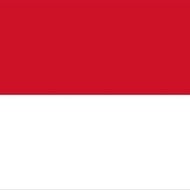Abdurrahman Wahid
#118,385 Most Popular
About
The 4th President of Indonesia. His term of power lasted from 1999 until his removal from office in 2001. He formed the National Awakening Party (PKB) following the great upheaval in Indonesian politics in the late 1990s before he would be elected President by a margin of 60 votes. His time as president was full of contention and resistance to decisions such as being open to trade and relations with Israel, his reform of those in control of the military forces while questioning their accounting practices, and the chronic turn-over of the members of his cabinets due to corruption or refusal to work towards reforming the state of government in Indonesia. Many refer to his presidency as an important step towards democracy. However, in 2001, after declaring the State of Emergency and making one final gesture towards reforming the congressional bodies of their government, he was removed from power by his opposition.
Before fame
Born with the name Abdurrahman ad-Dakhil and known colloquially as Gus Dur, an affectionate name given by the Javanese population. The political party he belong to and founded, the PKB, was pro-Islam but believed in a more moderate temperament for religion in politics. He was granted a scholarship to attend school overseas at the Al Azhar University in Cairo, Egypt, and later at the University of Baghdad in Iraq. He would attempt graduate studies in Europe but was not satisfied with any programs there, so he would return home. While in school, he worked primarily in journalism. However, after returning home and settling in Jakarta, he would start his political career.
Trivia
He would receive the Magsaysay Award, informally referred to as Asia's Nobel Price, in 1993 for his work to promote peace and relationships between the religious factions of Indonesia. He also received honorary doctorate degrees from many prominent universities around the globe.
Family life
His parents belonged to the upper-middle class of Indonesia in the East Java region. He was the oldest of 6 children born to his family. He would marry Sinta Nuriyah and have four daughters, one of whom leads the Wahid Institute that he founded to promote academia and Islamic studies.
Associated with
His second daughter, Zannuba Arifah Chafsoh, known commonly as Yenny Wahid is a journalist, activist, and politician who now leads her father's Wahid Institute, living more of what he had hoped to lead outside of the shine of such higher-up political ambitions.











